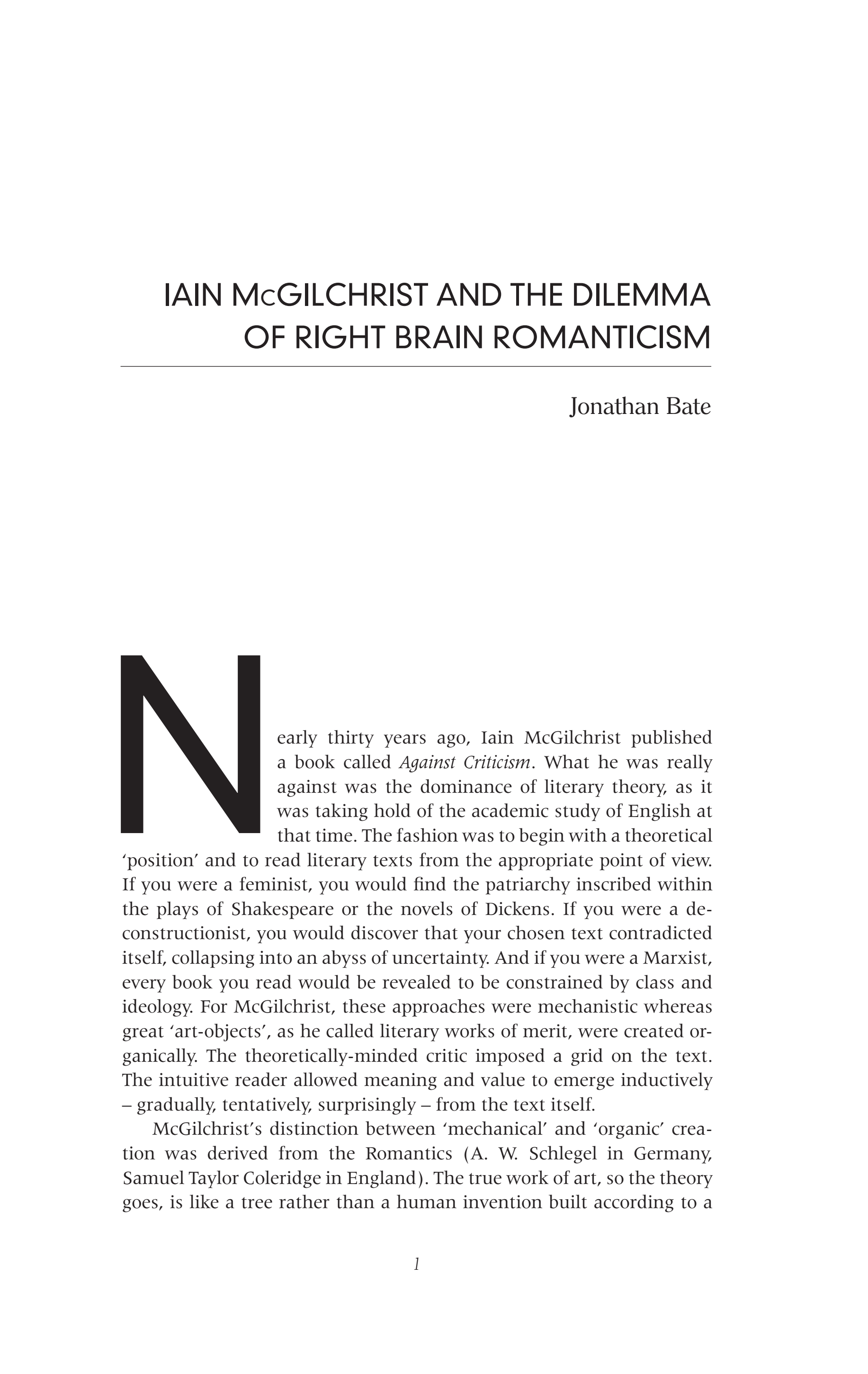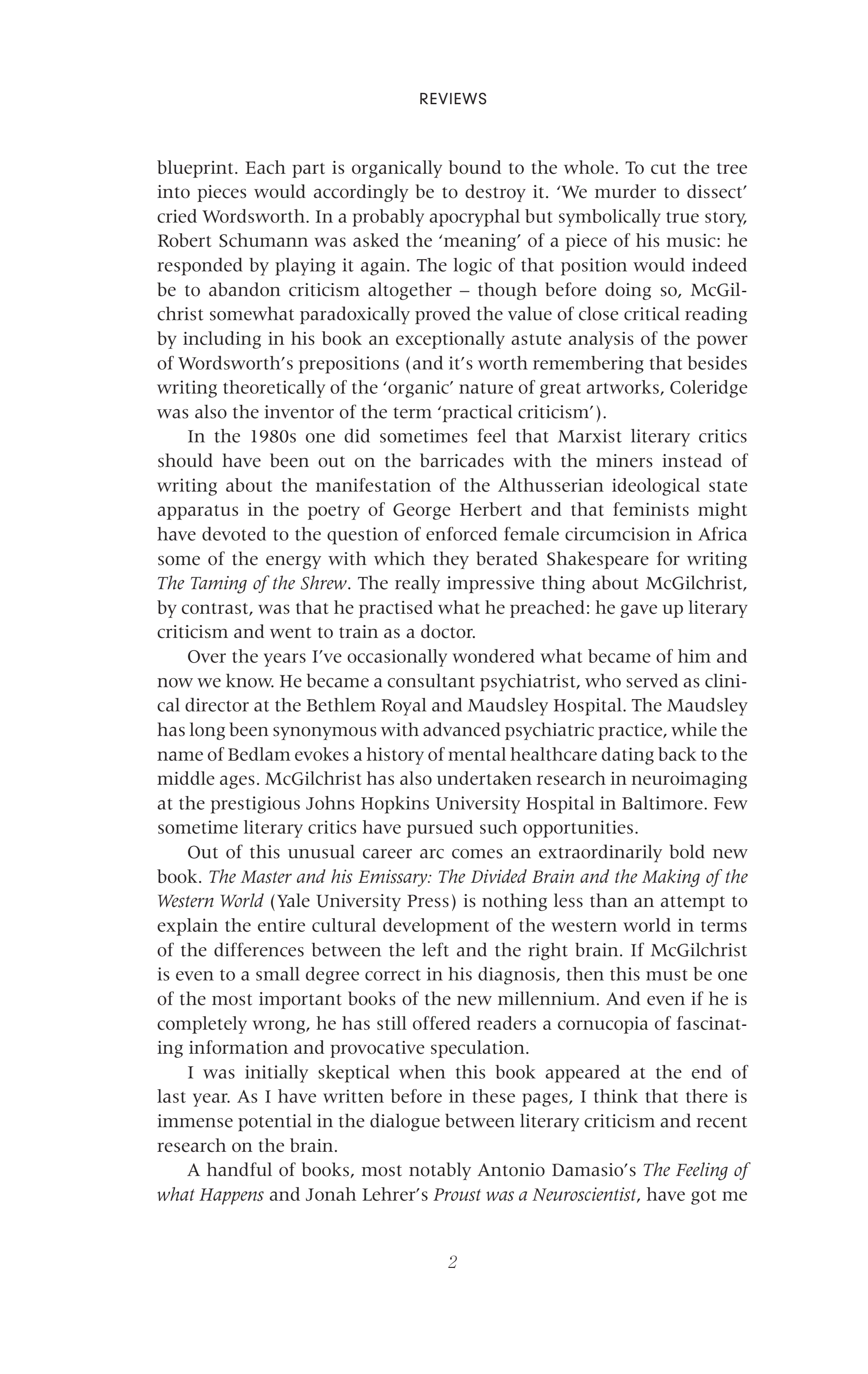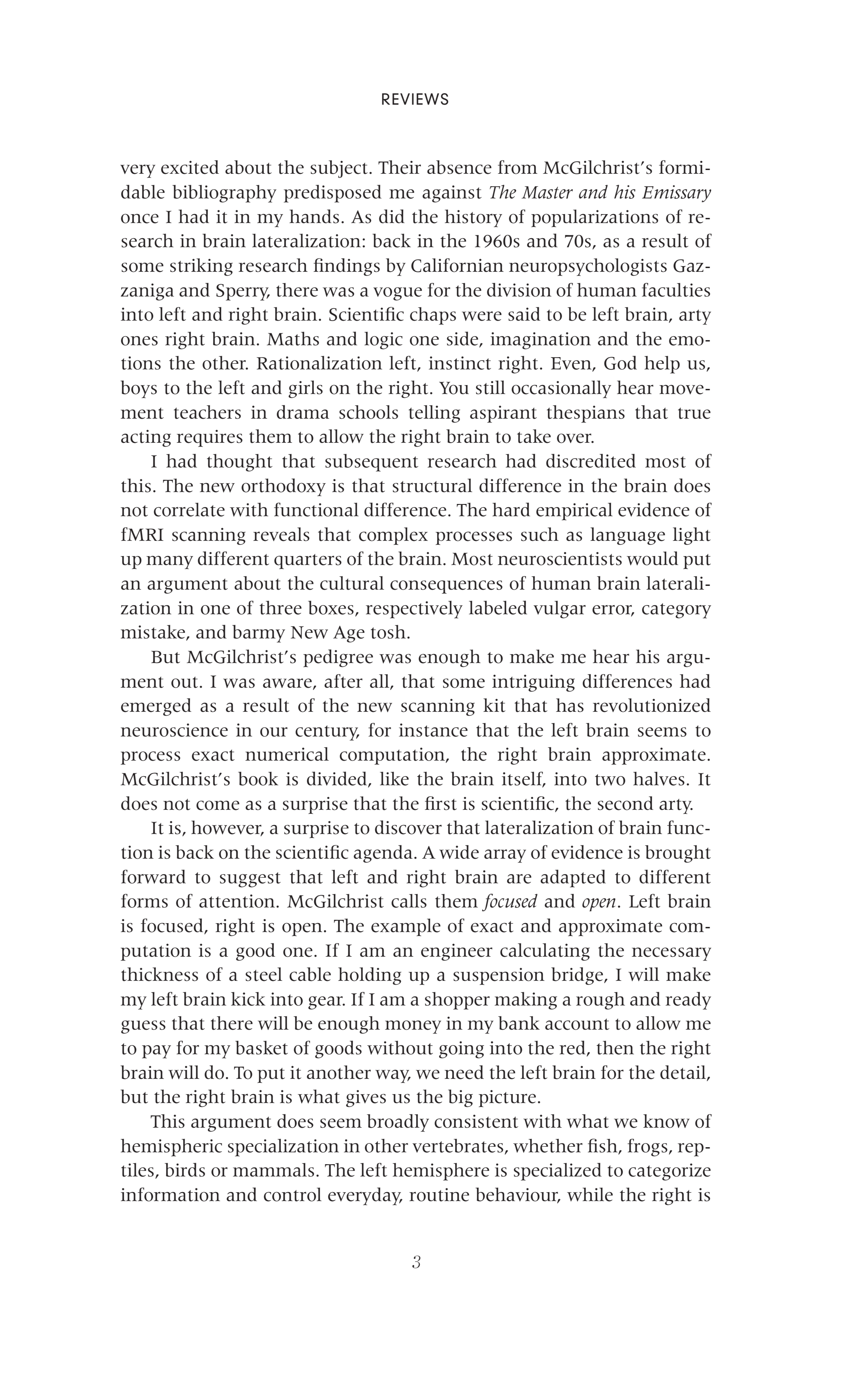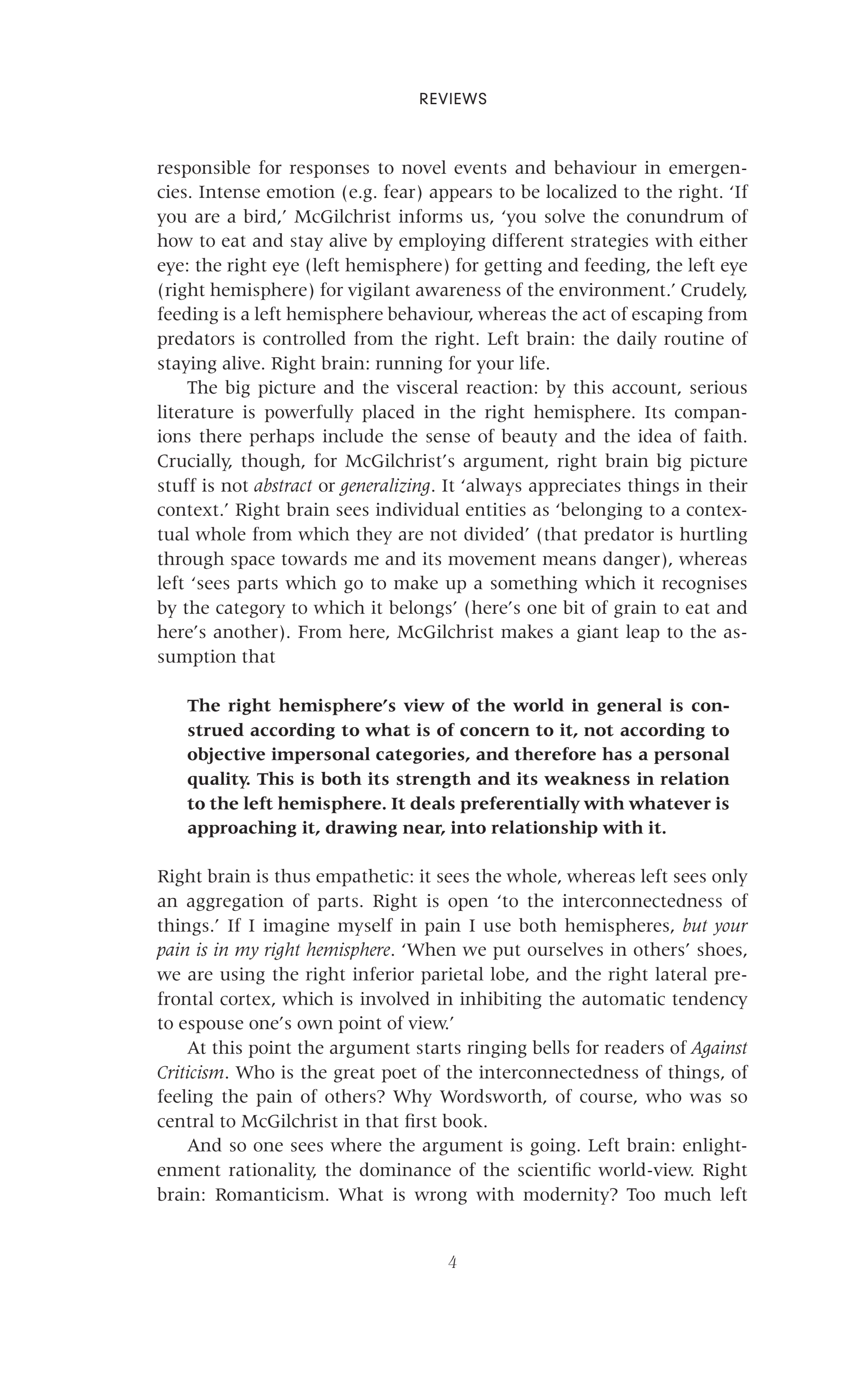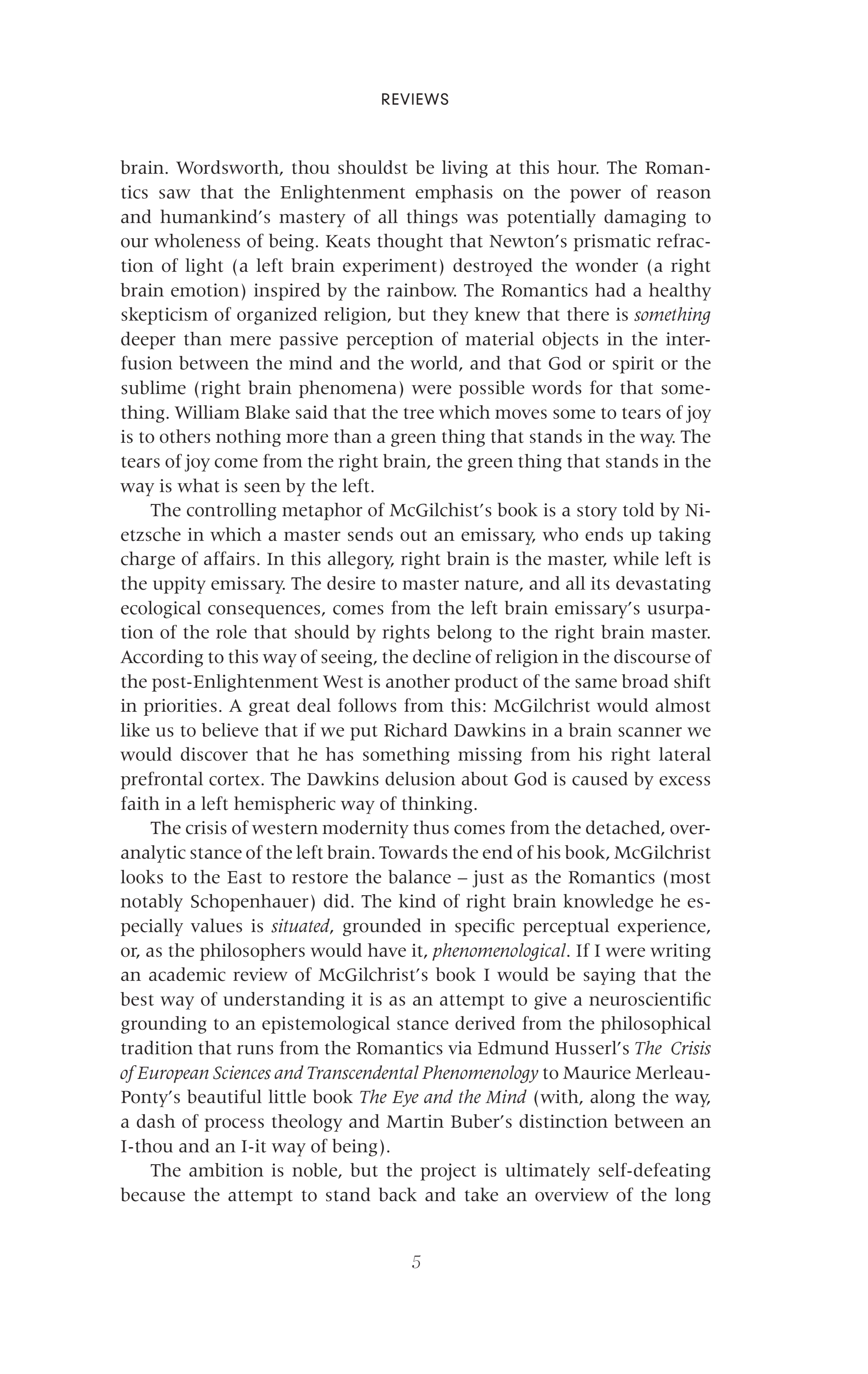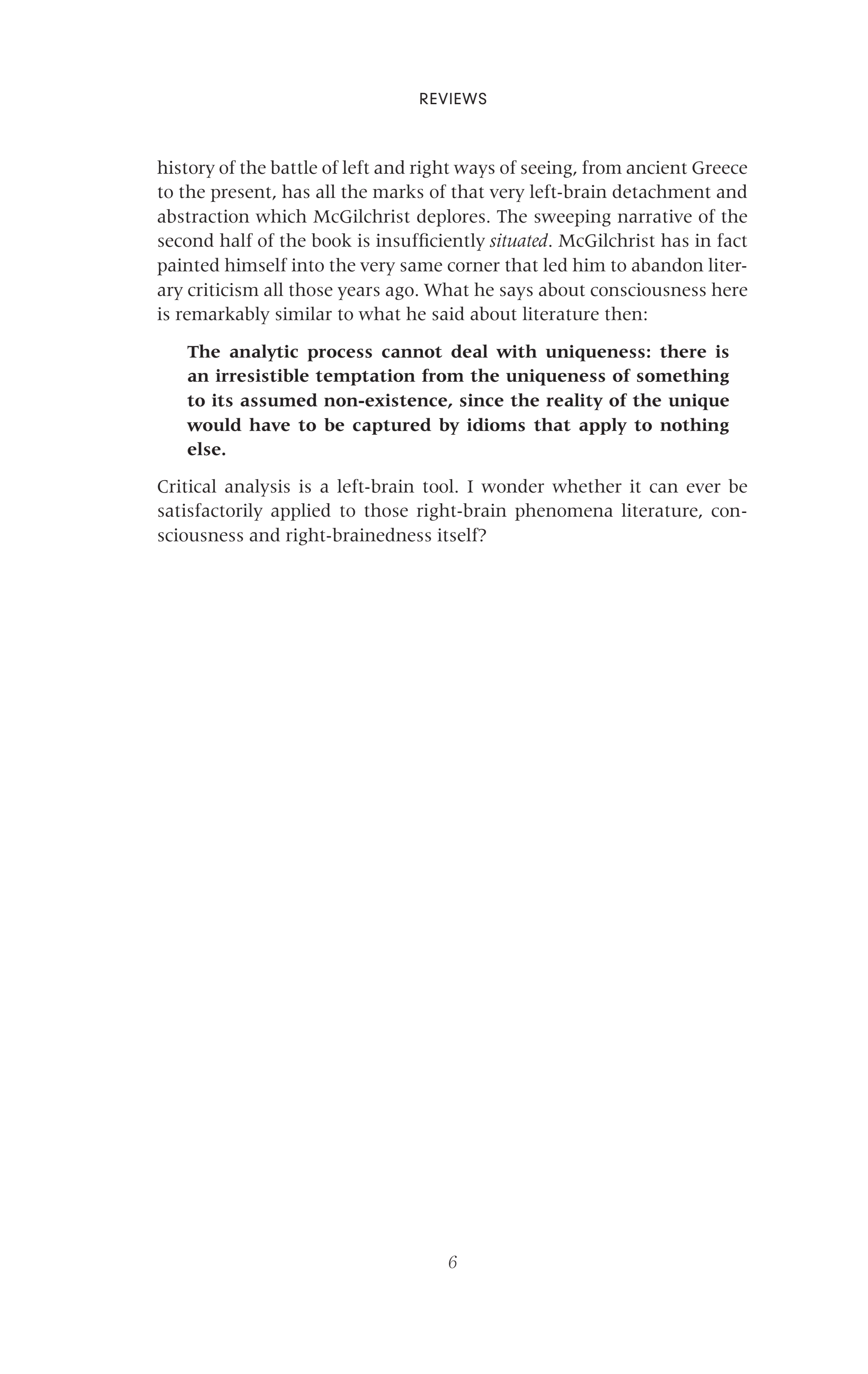Nearly thirty years ago, Iain McGilchrist published a book called Against Criticism. What he was really against was the dominance of literary theory, as it was taking hold of the academic study of English at that time. The fashion was to begin with a theoretical ‘position’ and to read literary texts from the appropriate point of view. If you were a feminist, you would find the patriarchy inscribed within the plays of Shakespeare or the novels of Dickens. If you were a deconstructionist, you would discover that your chosen text contradicted itself, collapsing into an abyss of uncertainty. And if you were a Marxist, every book you read would be revealed to be constrained by class and ideology. For McGilchrist, these approaches were mechanistic whereas great ‘art-objects’, as he called literary works of merit, were created organically. The theoretically-minded critic imposed a grid on the text. The intuitive reader allowed meaning and value to emerge inductively – gradually, tentatively, surprisingly – from the text itself.
